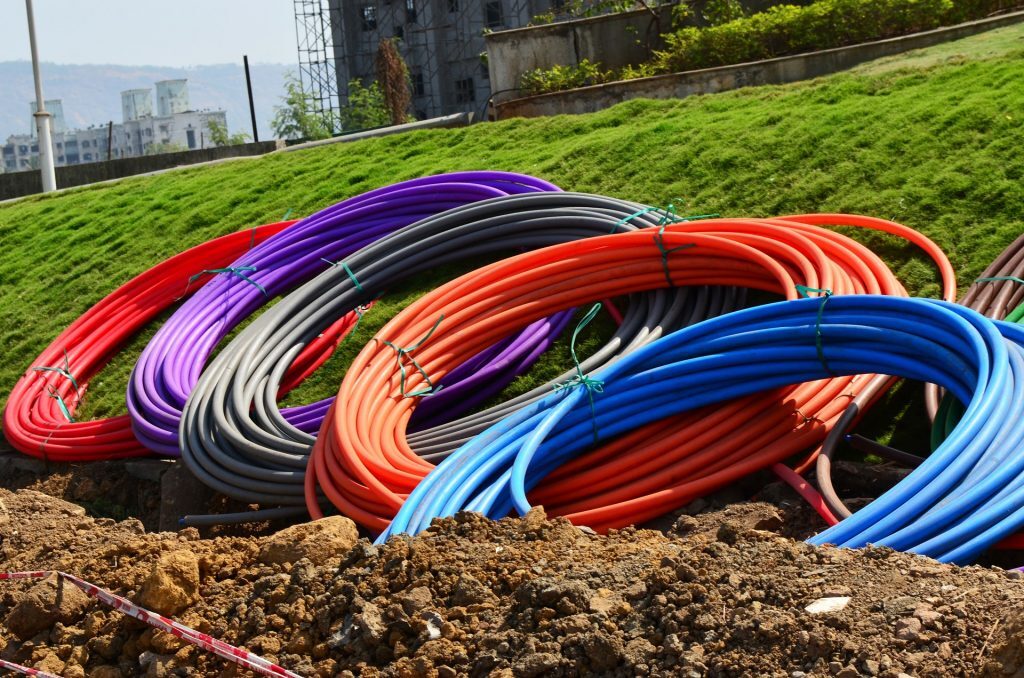As South Africa inches closer to half-time in 2021, the COVID-19 pandemic’s impact has not stopped being felt.
Businesses have closed down, the economy has taken a massive hit and more and more enterprises have started to learn that office space is an unnecessary requirement. Where once experts told us all in 2020 that the pandemic was bringing in a ‘new normal’ format of working, this year we’ve realised that the ‘new normal’ is now ‘normal’.
In a lot of instances, the pandemic has accelerated working practices that were probably in the pipeline anyway. In others, it’s amplified requirements that South Africa has needed for a very long time. To wit, a recent report released by global consulting firm Kearney Africa, has pointed to the fact that an improved technological infrastructure in South Africa could attract investment from overseas, providing a much-needed jolt of adrenaline to the country’s economy.
South Africa needs better tech infrastructure
The takeaways from the report are as follows:
- Localisation of global value chains will accelerate
- Green hydrogen projects will increase rapidly
- Rising food insecurity will lead to increased investment in agricultural and food tech
- The number of digital nomads will rise as remote work continues
- The battle over misinformation will intensify
That’s a laundry list of requirements that makes for interesting reading and Kearney Africa’s Managing Director, Theo Sibiya says these trends need a focus on the development of the country’s infrastructure.
“All of these trends are technology-dependent and if we look technological trends around the fourth industrial revolution – especially those that are going to unlock economic growth,” says Sibiya.
“We don’t see enough investment happening from a policy perspective from the government, but we do see a lot from organisations and corporates exploring and investing in these technologies such as AI, IoT, blockchain, robotics and so forth. Those are picking up in South Africa but they are in some regards still hamstrung by the infrastructure.”
Sibiya says that the need for improved infrastructure has been evident for years, but the COVID-19 pandemic has amplified this dramatically.
“An example of this (amplification) occurred last year in the education space, the pandemic highlighted the efficiency and deficiency in our infrastructure to support education for the less privileged,” says Sibiya.
“The other key aspect that I’d like to highlight is the rise of digital nomads. When we look at this trend, we see that people can work almost anywhere in the world. The pandemic has proven these technologies are increasing in terms of the rate of adoption. In South Africa, we have the potential to be an ideal destination for digital nomads, but they’ll only go where the tech infrastructure is good enough to facilitate their ability to work.”
So far, so obvious, but for those technologies to increase in South Africa, Sibiya says, the country needs its infrastructure to be improved greatly – it needs to be 4G or even 5G enabled, but here we run into a problem.
Political will is needed
Anyone with even a passing interest in SA tech will know there have been delays in implementation; a couple of examples include the switch over from analogue to digital, which still hasn’t happened and the country’s spectrum auction that has been in the pipeline for years.
The problem facing the sort of infrastructural improvement Sibiya is talking about is that it seems to lack substantial political will on the part of South Africa’s government.
“Government, which is meant to establish and put in place enabling policy, is moving at a snail’s pace. It’s acting like a barrier instead of an enabler. Even if the wish is there, the action has to accompany it and I think in many respects we fail on the execution side at a government level. The policies aren’t bad the execution isn’t great, says Sibiya.
Reasons to be hopeful
In spite of this political reality, Sibya says that he’s still optimistic.
“What gives me hope is that with the rapid rate of technological advancement and the speed at which people adapt to them, you’re almost finding a situation where policy is following technology,” he says.
“You have, for example, Uber, which came out and disrupted the market and for a while people struggled to define what Uber was – a taxi company or a tech company. As a result, policy wasn’t there and it still isn’t there to a degree to regulate or organisations like it across the globe. It’s difficult to see where their head offices are or how they deal with taxes – all of these issues that have a local impact.”
“South Africa is not alone in this. Governments around the world are still grappling with policy and regulation. This is going to happen again and again. On the one hand, policy slows things down, but on the other technology leads. It doesn’t wait for policy. It just leads.”
